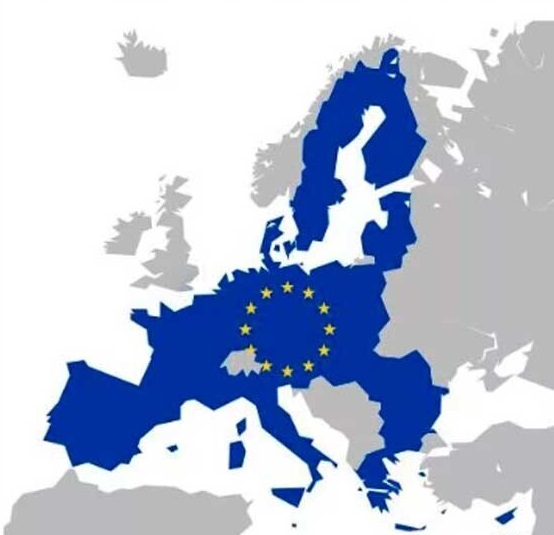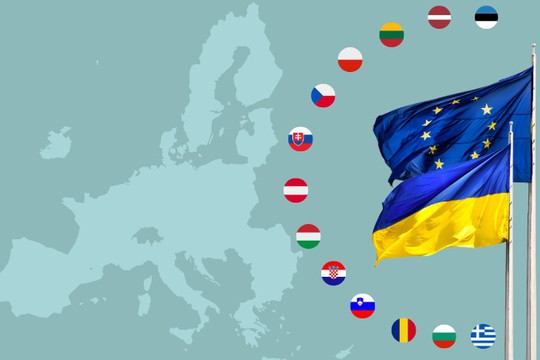Pic.: lossi36.com
The legacy of the US Democrats' policy in Europe is evident in the tactics of "strategic ambiguity" used by the administration of former US President Joe Biden and adopted by European leaders, writes “Izvestia”.
The Munich conference exposed the contradictions between the US and the EU on a number of positions, including the settlement of the Ukrainian conflict. Why, despite all the damage to the European economy, do the bloc's countries oppose peace in Ukraine and risk contradicting the U.S. on this issue? What goals does the EU pursue in Ukraine, and who will win and who will lose from ending the conflict?
Europe's motives
- Support for Ukraine, which has cost Europe dearly, continues not only out of inertia. The expert community is unanimous in the opinion that the EU continues to be influenced by representatives of the US Democratic Party, to which the previous White House administration belonged. The Democrats manage to maintain a strong influence even under Trump, and his failures on the foreign policy track can be used by his opponents to gain an advantage in the next elections.
- The legacy of the US Democrats' policy in Europe is also evident in the tactics of "strategic ambiguity" used by the administration of former US President Joe Biden and adopted by European leaders. In particular, French President Emmanuel Macron, despite earlier statements about his readiness to send French troops to Ukraine, denied this information and explained his statements as a political ploy to create uncertainty and provide additional pressure on Russia.
- Ukrainian fertile land and subsoil could also be of interest to the EU. Ukraine promised semi-mythical rare earth metals to the EU as early as 2021, even before it began offering them for U.S. aid. But Europe's interest in the conflict can also be explained by plans to control the Black Sea, which could become the EU's main transport corridor and turn it into a regional center of power, which in turn would allow the EU to dictate its terms on Russian hydrocarbon supplies.
- Most of Russia's gold and foreign exchange reserves are in Europe: the EU uses the proceeds to help Ukraine and pay court fines. There are regular talks in the EU about appropriating these assets, and Kiev is also insisting on utilizing Russia's gold and foreign exchange. But the EU fears that such actions will lead to a loss of confidence in foreign partners. If they decide to withdraw funds from the Eurozone and sell their European assets, it will have disastrous consequences for the EU economy.
- Euro-politicians present Russia as the main threat to Europe. According to political analysts, the EU is an artificial entity, a product of the liberal world order, as the Democratic Party of the U.S.S.R. saw it. In order not to disintegrate amid disagreements over the influx of migrants, inflation, economic crisis, growing unemployment and risks associated with the loss of Russian energy resources, Europe needs a familiar enemy, opposition to which will unite the countries of the bloc.
- The EU is interested in weakening Russia as much as possible. Therefore, Ukraine and Europe seek to delay negotiations and continue the conflict, arguing that Russia's economy is "about to collapse," while Ukraine, after additional injections of money and weapons, will achieve success on the battlefield and will be able to negotiate "in a strong position." It is true that neither Western allies nor Kiev have any illusions about Ukraine's "victory."
 German Defense Minister Boris Pistorius (left) and Ukrainian Zelensky shake hands with German and Ukrainian soldiers during their visit to a military base in northern Germany, to learn about the training of Ukrainian soldiers on the Patriot anti-aircraft missile system.
German Defense Minister Boris Pistorius (left) and Ukrainian Zelensky shake hands with German and Ukrainian soldiers during their visit to a military base in northern Germany, to learn about the training of Ukrainian soldiers on the Patriot anti-aircraft missile system.
Photo: DPA
Russia on Europe's participation
- Russia has opposed Europe's presence at the negotiating table because the EU views any ceasefire as an opportunity to further arm Ukraine and continue the conflict, which contradicts the goals of achieving a lasting peace that Washington and Moscow are talking about.
- The Russian Foreign Ministry recalled that the EU countries had several opportunities to participate in the process of settling the situation in Ukraine. In particular, they acted as guarantors in signing the February 2014 agreement between former President Viktor Yanukovych and the armed Ukrainian opposition, the terms of which were violated the very next day, and the Europeans reneged on their commitments. The same fate befell the Minsk agreements. In December 2022, former German Chancellor Angela Merkel admitted that the EU needed Minsk only to freeze the conflict and "make Ukraine stronger."
Who stands to gain from dragging out the talks
- Sabotaging Trump's efforts to reach a peace deal benefits not only Europe, but also the US Democratic Party: any attempt to force the parties to peace will be presented as a blatant attack on democracy in Europe. Already now all the actions of the Trump administration are being rebuffed by the state and judicial bodies, which are headed by Democratic appointees.
- Eurobureaucrats are counting on the continuation of the conflict in Ukraine. The imminent ceasefire sought by Trump has already been called a "dirty deal" by the head of Eurodiplomacy, Kaja Kallas, who said that no agreement will work without the participation of Kiev and Brussels. At the same time, ordinary Europeans are likely to lose from the prolongation of peace talks, because they have to face growing unemployment and economic crisis against the backdrop of rising crime, which is fueled by migration from Ukraine.
…The outline of Europe resembles the pose of a cat that has raised its tail and is shitting towards the East:

read more in our Telegram-channel https://t.me/The_International_Affairs

 10:54 21.02.2025 •
10:54 21.02.2025 •























